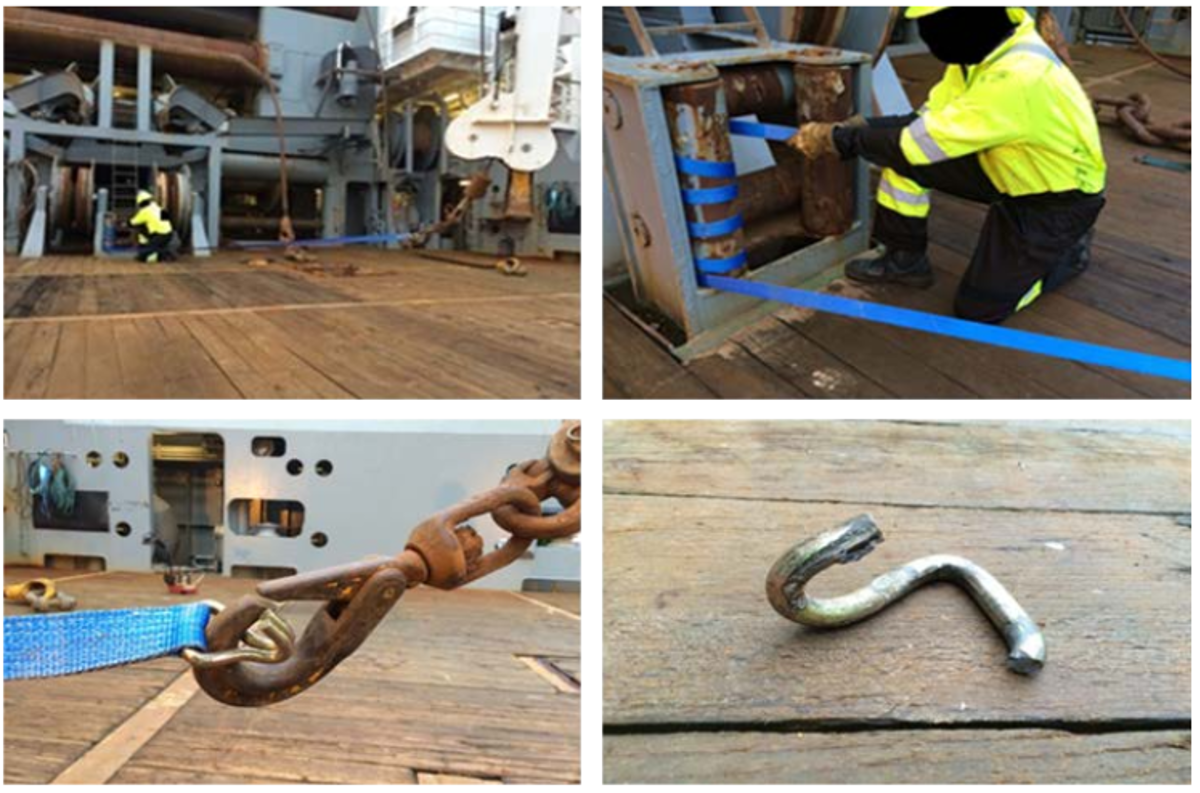Pallet strop hook broke and hit AB
- Safety Flash
- Published on 29 November 2016
- Generated on 24 February 2026
- IMCA SF 32/16
- 1 minute read
Jump to:
The Marine Safety Forum (MSF) has published a safety alert regarding an incident in which a strop hook broke and hit a crewmember.
What happened?
The incident occurred during maintenance on deck. Vessel crew discovered a roller on a winch that was stuck. They decided to try and loosen it by using the rail crane fitted on the vessel. When the crane driver tried to pull it loose the pallet strap hook broke off the crane hook and hit a sailor in the back. He was severely injured.
The information provided by the MSF does not record what steps were taken to secure the pallet strop hook safely or the medical treatment provided to the injured person.

The brief and initial conclusions drawn are repeated here:
- The pallet strop hook was incorrectly secured to the crane hook making it much weaker than the safe working load (SWL) of the lifting strops.
- Equipment was used incorrectly.
- Crew were stood in the snapback zone.
- There was inadequate planning and risk assessment.
Related Safety Flashes
-
IMCA SF 15/15
13 October 2015
-
IMCA SF 15/15
13 October 2015
-
IMCA SF 15/15
13 October 2015
-
IMCA SF 02/10
8 April 2010
IMCA Safety Flashes summarise key safety matters and incidents, allowing lessons to be more easily learnt for the benefit of the entire offshore industry.
The effectiveness of the IMCA Safety Flash system depends on the industry sharing information and so avoiding repeat incidents. Incidents are classified according to IOGP's Life Saving Rules.
All information is anonymised or sanitised, as appropriate, and warnings for graphic content included where possible.
IMCA makes every effort to ensure both the accuracy and reliability of the information shared, but is not be liable for any guidance and/or recommendation and/or statement herein contained.
The information contained in this document does not fulfil or replace any individual's or Member's legal, regulatory or other duties or obligations in respect of their operations. Individuals and Members remain solely responsible for the safe, lawful and proper conduct of their operations.
Share your safety incidents with IMCA online. Sign-up to receive Safety Flashes straight to your email.